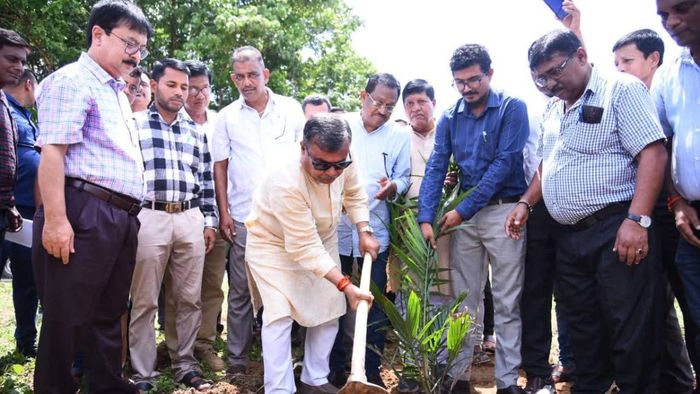Tripura cultivates 4,000 hectares of oil palm, research centre on the cards
Tripura has achieved a major milestone in its agricultural expansion, bringing nearly 4,000 hectares under oil palm cultivation as part of its push to reach a target of 7,000 hectares by the 2025–26 financial year, Agriculture and Farmers Welfare Minister Ratan Lal Nath announced on Monday.

- Jul 21, 2025,
- Updated Jul 21, 2025, 6:01 PM IST
Tripura has achieved a major milestone in its agricultural expansion, bringing nearly 4,000 hectares under oil palm cultivation as part of its push to reach a target of 7,000 hectares by the 2025–26 financial year, Agriculture and Farmers Welfare Minister Ratan Lal Nath announced on Monday.
Speaking at the launch of the Mega Oil Palm Plantation Drive at Taltala, Nath highlighted India's heavy dependence on imported edible oil and underscored the importance of achieving self-reliance. “While we’re self-sufficient in fish, rice, and many other commodities, edible oil is still imported in large quantities. Prime Minister Narendra Modi has laid the foundation for a self-reliant India in this sector,” he said.
Nath explained that the Northeast, particularly Tripura, has favourable conditions for oil palm cultivation. The government’s support includes everything from land clearing to sapling distribution. “Unlike rubber, farmers can grow intercrops with palm oil, enhancing income opportunities. Also, the price of palm oil is only expected to rise, assuring long-term market stability,” he noted.
Palm oil has a wide range of uses—from cooking and industrial oils to ingredients in cosmetics, pharmaceuticals, biofuels, and bio-lubricants, the minister added.
Also Read: Tripura Police focused on forensic, scientific based investigations for timely justice: DGP Anurag Dhankar
Under the National Mission on Edible Oils – Oil Palm (NMEO-OP), Tripura’s Horticulture and Soil Conservation department has signed MoUs with Godrej Agrovet Ltd. and Patanjali Foods Pvt. Ltd. for processing and procurement. Godrej has been allotted Unakoti, North, and Dhalai districts, while Patanjali will cover Khowai, West, Sepahijala, Gomati, and South districts.
Godrej Agrovet laid the foundation stone for a palm oil processing unit at Nalkata in Dhalai district on August 10, 2024, and plans to set up an international-standard Oil Palm Research and Solutions Centre in collaboration with Malaysia’s SD Guthrie International.
Meanwhile, Patanjali Foods Ltd. is planning another processing unit at Gurupada Bagan.
Tripura’s initial oil palm suitability assessment was done in 2012 by the Government of India’s DAC Committee, identifying 7,000 hectares. A 2020 re-evaluation by ICAR-IIOPR later expanded the potential area to over 1.46 lakh hectares using digital mapping.
“Our department is fully committed to the 7,000-hectare target by 2025–26,” Nath reiterated, calling the crop both economically viable and strategically important for India’s edible oil security.